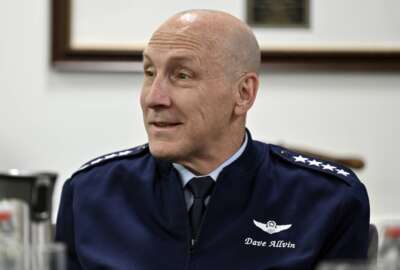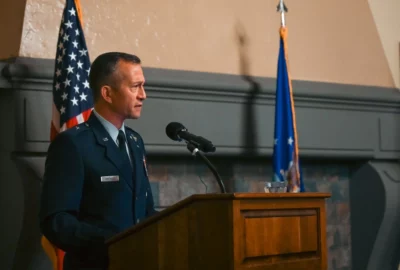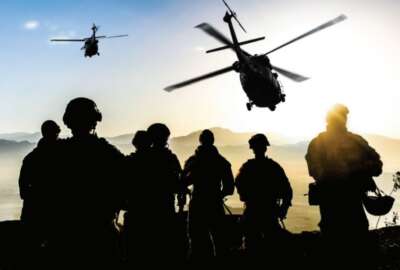Air Force secretary ‘confident’ there’s enough support for service’s ongoing overhaul amid election uncertainty
“The things we’re doing are pretty logical there. They’re aligned with what our needs are relative to the threat," Frank Kendall said.
Ever since he became the Secretary of the Air Force three years ago, Frank Kendall has emphasized the need to better position the Air Force for a modern conflict. In 2022, he introduced a set of operational imperatives to support the Air Force’s priorities, and earlier this year, he announced a major structural overhaul that will streamline the service’s bureaucracy and boost overall readiness.
As a political appointee, however, Kendall’s future service depends on who occupies the White House next year. Plus, the election introduces uncertainty, but Kendall said he’s confident there is enough institutional support for the overhaul to continue regardless of who the next president is.
“I’m not worried about that. The things we’re doing, I think, are pretty logical there. They’re aligned with what our needs are relative to the threat. There’s been no real pushback from the Congress on any of them. I think they’re not controversial,” Kendall told reporters during AFA’s Air, Space & Cyber Conference.
“The idea of a futures command in the Space Force, the idea of an integrated capabilities command in the Air Force with a similar role, changing the nature of the centers on the acquisition side, and introduction of warrant officers. These are not political football, policy type things. They’re all about the heart of the matter of how we organize.”
The creation of the Space Futures Command was one of the biggest shakeups announced in February. Chief of Space Operations Gen. Chance Saltzman indicated during the conference that it could take up to a year to stand up the command.
The Space Futures Command will be responsible for future planning in the Space Force, and it will serve a similar function as the Air Force’s Integrated Capabilities Command – service leaders announced a provisional version of the command earlier this week, but it won’t be fully operational until 2025.
And the service’s plan to bring back warrant officers into its ranks is already yielding results – the first cohort of candidates will begin their training in October and arrive at their assignments by January 2025.
“There’s a lot of institutional support, the two chiefs and the under and I all worked really hard as we went a year ago through the process of figuring out what we’re going to do to have constant communication with all of our major command commanders and other key stakeholders in the department, so there’s very widespread support institutionally for the things we’re doing. And the support goes down through the ranks, so I’m really not worried about that,” said Kendall.
With much uncertainty looming as the election approaches, Kendall said he hopes he will “have the opportunity to continue to serve.”
“If not, you can be certain I will be working as hard as I can, for as long as I can, to prepare the Department of the Air Force for a conflict that is not inevitable but may be becoming more likely over time,” he said during his keynote at AFA’s Air, Space & Cyber Conference on Monday.
Regardless of what happens in November, Kendall’s “sweeping” set of efforts will take years to put into action.
Congressional support
When service leaders unveiled the changes in February, Congress and the Air Force community were slightly skeptical about the service’s major overhaul.
The fiscal 2024 defense appropriations bill, for instance, required the service to explain why the change is needed and lay out how it would go about the reorganization.
“To date, the Department of the Air Force has not provided thorough justification for this reorganization, a comprehensive implementation plan, or detailed budgetary information necessary for the Subcommittees to assess this plan,” lawmakers said.
But since then, lawmakers moved from “mild skepticism to genuine interest,” said Chief of Staff Gen. David Allvin.
“I think how we move that forward is the non-stop collaboration. They put the language in there that said, ‘If you’re going to do anything, give us congressional notifications.’ I get an update weekly about what the congressional notifications required are, how we’ve been doing on those congressional notifications. So I think it’s really just following through on the promise we made to them to keep them informed as we are moving on the fly and we are developing as we’re going — to let them know how things are progressing. I think that has really served us well, which is why the steps that we’ve taken thus far, every one of the notifications so far has been met by good dialog and acceptance and approval,” Allvin told reporters.
Copyright © 2024 Federal News Network. All rights reserved. This website is not intended for users located within the European Economic Area.






